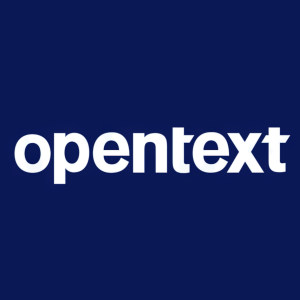OpenText and Ponemon Institute Survey of CIOs Finds Lack of Information Readiness Threatens AI Success
Rhea-AI Summary
OpenText (NASDAQ: OTEX) has released a comprehensive global study conducted with the Ponemon Institute, surveying nearly 1,900 IT leaders about AI readiness and information security. The research reveals a significant gap between AI ambitions and organizational readiness, with 73% of respondents identifying information complexity reduction as crucial for AI success.
Key findings show that while 57% of organizations prioritize AI adoption and 54% are confident in ROI, 53% find it extremely challenging to mitigate AI security risks. Currently, 32% have adopted generative AI, with another 26% planning implementation within six months. The study highlights that fewer than half (47%) of organizations have aligned IT security goals with AI strategy.
Positive
- None.
Negative
- Only 43% are confident in measuring ROI on information security management
- 53% report extreme difficulty in reducing AI security and legal risks
- Less than half (47%) have aligned IT/security goals with AI strategy
- High information complexity with unstructured data (44%) causing significant challenges
New research of almost 1,900 CIOs, CISOs, and other IT leaders shows they are under pressure to ensure sensitive information is secure and compliant without hindering growth
Developed in partnership with the Ponemon Institute -- a leading, independent research firm focused on information security and privacy management -- the study revealed almost three-quarters (
"This research confirms what we're hearing from CIOs every day. AI is mission-critical, but most organizations aren't ready to support it," said Shannon Bell, Chief Digital Officer, OpenText. "Without trusted, well-governed information, AI can't deliver on its promise. At OpenText, we're helping IT and security leaders close that gap by simplifying information complexity, strengthening governance, and ensuring the right information is secure and actionable across the enterprise."
Information Readiness Is the Missing Link in AI Success
While AI is a high priority, the research underscores a key gap, that most organizations lack the information readiness to deploy AI securely or effectively. The report also found that while IT and security leaders remain confident in the ROI of AI, it is difficult to adopt, secure, and govern.
As this gap widens, information management is becoming the connective tissue between enabling innovation and maintaining trust. OpenText helps close that gap, by equipping leaders with the tools to simplify complexity, confidently govern data, and operationalize AI responsibly.
- Information complexity impedes readiness:
73% say reducing complexity is essential (23% ), very important (23% ) and important (27% ) for a strong security posture, with unstructured data (44% ) among the top contributors to complexity. - Data governance is the first line of defense: To address data security risks in AI, nearly half (
46% ) of respondents say they are developing a data security program and practice. - Confidence is lagging: Just
43% are very or highly confident in their ability to measure ROI on securing and managing information assets.
The AI Paradox: High Confidence in ROI, Low Readiness in Execution
Leaders are optimistic about the value AI can deliver, but readiness is low. Many organizations still lack the security, governance, and alignment needed to deploy AI responsibly.
57% of respondents rate AI adoption as a top priority, and54% are confident they can demonstrate ROI from AI initiatives. However,53% say it is "very difficult" or "extremely difficult" to reduce AI security and legal risks.- Fewer than half (
47% ) say IT and security goals are aligned with those driving AI strategy, even though50% of respondents say their organizations have hired or are considering hiring a chief AI officer or a chief digital officer to lead AI strategy. - GenAI is gaining traction, with
32% having adopted it, and another26% planning to in the next six months. Top GenAI use cases include security operations (39% ), employee productivity (36% ), and software development (34% ). - Yet only
19% of organizations have adopted agentic AI and16% will adopt it in the next six months. Just31% of those rate agentic AI as highly important to their business strategy.
Improving Information and AI Readiness
The research also revealed best practices for achieving AI readiness based on responses from the organizations that have invested in AI. These include:
- Protect sensitive data exposure: Organizations should know where sensitive data resides, who can access it, and how it is used. Strong access controls, clear data classification policies and anomaly detection tools can help reduce exposure.
- Implement responsible AI practices: A comprehensive approach includes data cleansing and governance, validating AI inputs and outputs, employee training, and regular model bias checks to ensure AI is used safely and ethically.
- Strengthen encryption: Encryption should be applied to data in storage, transit and during AI processing. This ensures that sensitive information remains protected throughout the AI lifecycle.
The full report also reveals additional pressures from insider risk, proving ROI of AI and IT investments, and managing security complexity.
Survey Methodology
The Ponemon Institute independently surveyed 1,896 senior IT and security leaders across
Additional Resources
- Read the full report for more on broader AI and IT priorities, security trends, and investments: Click here
About OpenText
OpenText™ is a leading Cloud and AI company that provides organizations around the world with a comprehensive suite of Business AI, Business Clouds, and Business Technology. We help organizations grow, innovate, become more efficient and effective, and do so in a trusted and secure way – through Information Management. For more information about OpenText (NASDAQ/TSX: OTEX), please visit us at www.opentext.com.
Connect with us:
Certain statements in this press release may contain words considered forward-looking statements or information under applicable securities laws. These statements are based on OpenText's current expectations, estimates, forecasts and projections about the operating environment, economies and markets in which the company operates. These statements are subject to important assumptions, risks and uncertainties that are difficult to predict, and the actual outcome may be materially different. OpenText's assumptions, although considered reasonable by the company at the date of this press release, may prove to be inaccurate and consequently its actual results could differ materially from the expectations set out herein. For additional information with respect to risks and other factors which could occur, see OpenText's Annual Report on Form 10-K, Quarterly Reports on Form 10-Q and other securities filings with the SEC and other securities regulators. Readers are cautioned not to place undue reliance upon any such forward-looking statements, which speak only as of the date made. Unless otherwise required by applicable securities laws, OpenText disclaims any intention or obligations to update or revise any forward-looking statements, whether as a result of new information, future events or otherwise. Further, readers should note that we may announce information using our website, press releases, securities law filings, public conference calls, webcasts and the social media channels identified on the Investors section of our website (https://investors.opentext.com). Such social media channels may include the Company's or our CEO's blog, Twitter account or LinkedIn account. The information posted through such channels may be material. Accordingly, readers should monitor such channels in addition to our other forms of communication.
Copyright © 2025 OpenText. All Rights Reserved. Trademarks owned by OpenText. One or more patents may cover this product(s). For more information, please visit https://www.opentext.com/patents.
OTEX-G
![]() View original content to download multimedia:https://www.prnewswire.com/news-releases/opentext-and-ponemon-institute-survey-of-cios-finds-lack-of-information-readiness-threatens-ai-success-302539676.html
View original content to download multimedia:https://www.prnewswire.com/news-releases/opentext-and-ponemon-institute-survey-of-cios-finds-lack-of-information-readiness-threatens-ai-success-302539676.html
SOURCE Open Text Corporation






